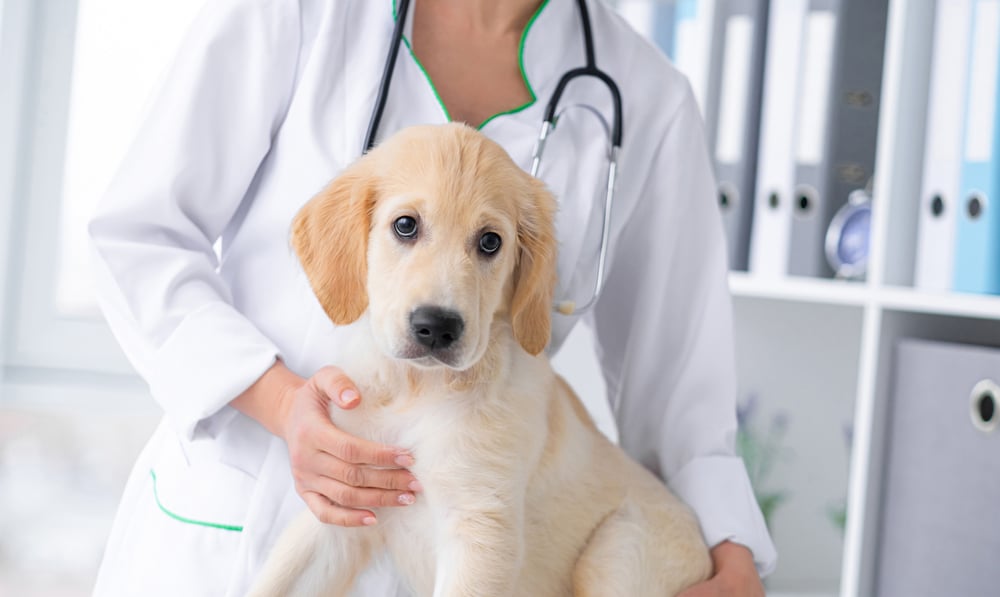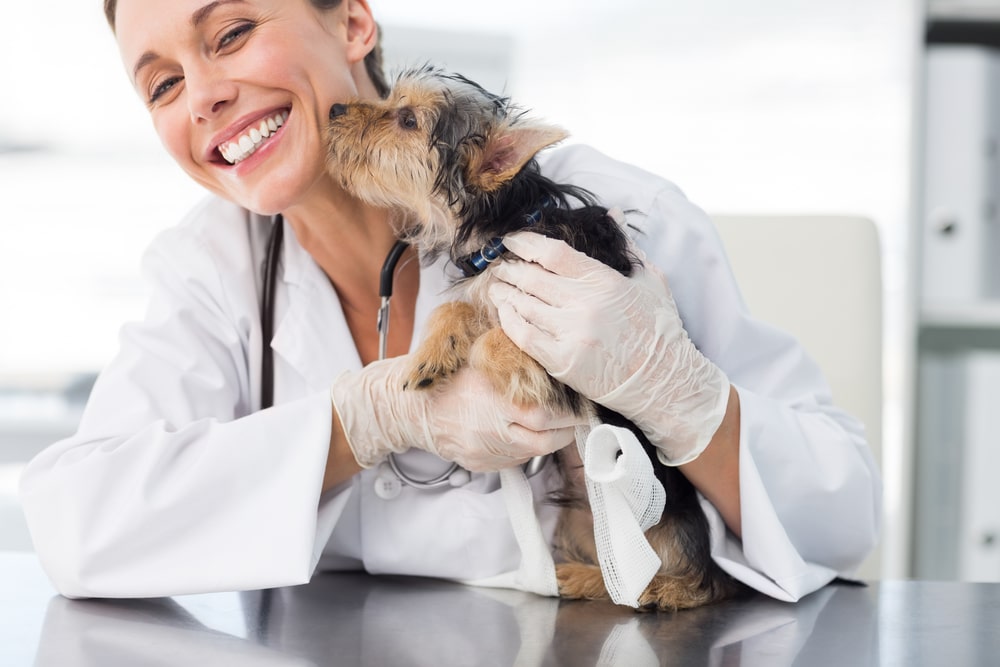Do you have a dog that seems to have digestive issues after eating dairy products? If so, your pup might be lactose intolerant. While it’s not common in dogs, some breeds are at a higher risk of lactose intolerance than others. To make sure your canine companion stays healthy and happy, it’s essential to know the signs of lactose intolerance in dogs.
To know if your dog is lactose intolerant, watch out for signs of digestive distress such as vomiting, diarrhea, and abdominal pain. Additionally, some dogs may also show an allergic reaction to dairy products in the form of itching or hives on their skin and ears. If you’re concerned that your dog may be lactose intolerant, it’s best to consult a veterinarian for a professional diagnosis and treatment advice.
Table of Contents
- What is Lactose Intolerance in Dogs?
- Symptoms Of Lactose Intolerance In Dogs
- Causes Of Lactose Intolerance In Dogs
- How To Diagnose Lactose Intolerance In Dogs
- Treatment Options For Dogs With Lactose Intolerance
- Ways To Help Prevent Lactose Intolerance In Your Dog
- Tips For Feeding Your Dog If They Are Lactose Intolerant
- In Conclusion: How To Know If A Dog Is Lactose Intolerant
What is Lactose Intolerance in Dogs?
Lactose is a sugar found in dairy products like milk, cheese, and yogurt that can be difficult for some animals to digest. Dogs that are lactose intolerant lack the enzyme lactase needed to break down and digest lactose. If they eat dairy products, this can cause uncomfortable symptoms, including diarrhea, vomiting, and bloating.
Symptoms Of Lactose Intolerance In Dogs
There are the following symptoms of lactose intolerance in dogs.
Diarrhea Or Loose Stools
One of the most common symptoms of lactose intolerance is diarrhea or loose stools.
This can be caused by an inability to digest lactose, which results in undigested food and bacteria being released into the intestines, causing inflammation and irritation.
Gas And Bloating
Another symptom that may indicate a dog has lactose intolerance is gas and bloating after eating dairy products or other foods containing lactose.
The body’s inability to process the sugar found in these foods leads to fermentation within the digestive tract, resulting in uncomfortable levels of gas production.
Vomiting
Dogs with a severe sensitivity to lactose may experience vomiting as their bodies attempt to expel offending substances from their systems quickly before they cause further damage internally.
Itching Or Hives
In some cases, an allergic reaction may occur if a dog consumes too much dairy or other items containing high amounts of lactose.
This could manifest itself through itchy skin or hives on your pet’s coat or around its face and mouth area due to contact with milk proteins during digestion.
Causes Of Lactose Intolerance In Dogs
Several factors, including genetics, age, and disease, can cause the condition.
Genetics
Genetics is one of the most common causes of lactose intolerance in dogs. Certain breeds are more prone to the condition than others due to their genetic makeup.
Breeds
Breeds such as Saluki, Basenji, Dachshunds, and Greyhounds have been susceptible to lactose intolerance.
Age
Age is also a factor in determining whether or not a dog is likely to develop lactose intolerance. Puppies produce an abundance of the enzyme needed to digest lactose while young.
However, as they get older, this enzyme production gradually decreases with age until it reaches significantly low levels. Once the production of this enzyme comes to these levels, a dog may become intolerant to lactose and start displaying symptoms.
Disease
Certain diseases can cause inflammation, reducing the enzymes needed to digest food properly. Examples of these diseases include inflammatory bowel syndrome (IBS), pancreatitis, liver dysfunction, or infections like EPI (exocrine pancreatic insufficiency).
How To Diagnose Lactose Intolerance In Dogs

To diagnose lactose intolerance in dogs, a veterinarian may ask the owner questions about their pet’s diet and any symptoms they have noticed.
The vet will then conduct a physical exam to look for signs of illness and may perform diagnostic tests and blood tests to identify the underlying cause of the dog’s symptoms. Depending on the type of test used, the vet will start to narrow down what’s causing the dog’s issues.
Treatment Options For Dogs With Lactose Intolerance
Treatment of lactose intolerance in dogs includes the following.
Dietary Changes
The primary treatment for canine lactose intolerance is dietary changes that avoid foods containing high amounts of lactose. This means eliminating all milk products from the dog’s diet and processed foods that contain milk ingredients such as cheese, yogurt, butter, and cream.
Instead, owners can feed their dogs more easily digestible proteins like fish and chicken, complex carbohydrates like potatoes and oats, and healthy fats like flaxseed oil or olive oil.
Digestive Enzymes Supplements
A veterinarian may also prescribe digestive enzyme supplements that contain specific enzymes to break down lactose molecules into smaller components that are easier for dogs to digest.
These supplements can be given before meals or added directly to food. They can help reduce many symptoms of lactose intolerance in dogs, such as diarrhea and gas.
Ways To Help Prevent Lactose Intolerance In Your Dog
Dog owners can take the following simple steps to reduce the chances of developing lactose intolerance in dogs:
- Offer your dog probiotics daily.
- Feed your dog low-lactose foods to prevent intolerance.
- Incorporate fermented dairy products into their diet.
- Make sure any treats you give them are lactose-free.
- Provide plenty of water and exercise for better digestion.
Tips For Feeding Your Dog If They Are Lactose Intolerant
If your dog is lactose intolerant, there are many ways to provide nourishment and nutrition while avoiding dairy products, such as the following:
- Stick to natural, nonprocessed pet foods, such as cooked meats and vegetables.
- Try meat substitutes like tofu and legumes that don’t contain dairy products.
- Choose egg whites over whole eggs since the yolks contain more lactose.
- Limit treats made with milk protein sources, such as cheese or yogurt.
- Offer alternatives like sweet potatoes, pumpkin puree, applesauce, or green beans for snacks instead of dairy products.
- Consider adding digestive enzymes to your pup’s meals to help break down potential traces.
In Conclusion: How To Know If A Dog Is Lactose Intolerant
To check if a dog is lactose intolerant, have them examined by a vet and undergo diagnostic tests. Prevention strategies include feeding probiotics, low-lactose foods, fermented dairy products, and limiting treats. Stick to natural pet foods and limit dairy products when feeding a lactose-intolerant dog.
So, do you think your dog is lactose intolerant? Let us know what’s going on in the comments below!
